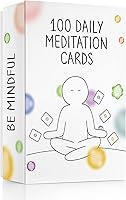Table of Contents
Being a sensitive person, an empath comes with unique challenges and gifts. Your ability to deeply understand and connect with others’ emotions can be both a blessing and a burden. As you navigate through life’s ups and downs, here are ten gentle reminders to help you protect your emotional well-being and find balance in a world that can sometimes feel overwhelming.
1. You are only responsible for your own emotions
Those of us who are sensitive tend to be deeply connected to the emotions of others. We may find ourselves empathizing with others’ struggles and wanting to alleviate their suffering. The key is to remember that we aren’t responsible for fixing or carrying everyone’s emotional burdens.
The feelings of those around us are deeply connected to us as sensitive individuals. As we empathize with others’ struggles, we may want to alleviate their pain, but it is important to remember that we cannot fix or carry the emotional burdens of everyone we meet.
As sensitive individuals, it’s natural to feel deeply connected to the emotions of those around us. However, we must remember that we are not responsible for fixing or carrying the emotional burdens of everyone we encounter, even if we find ourselves empathizing with others’ pain and wanting to relieve it.
The sensitivity of individuals makes us feel deeply connected to other people’s emotions. We may find ourselves empathizing with others’ struggles and wanting to ease their pain. It’s important to remember, however, that we’re not obligated to fix or carry everyone’s emotional burdens.
It is natural for sensitive individuals to feel deeply connected to other people’s feelings. While we may find ourselves empathizing with other people’s struggles and wanting to alleviate their suffering, it is important to remember that we are not responsible for fixing or carrying all the emotional burdens of everyone around us.
When we are sensitive, we are prone to empathizing with others’ struggles and wanting to alleviate their pain, which is completely normal. However, it is important to remember that we are not responsible for fixing or carrying the emotional burdens of everyone we encounter.
When we’re sensitive, we’re naturally connected to the emotions of others. Often, we may find ourselves empathizing with others’ hardships and wanting to help them. However, it’s important to keep in mind that we’re not responsible for fixing or carrying everyone’s emotional burdens.
When we are sensitive, we naturally feel deeply connected to the emotions of others. We may find ourselves empathizing with others’ struggles and wanting to alleviate their pain. Even so, we should remember that we cannot fix or shoulder everyone’s emotional burdens.
The emotions of those around us are deeply connected to us as sensitive individuals. It’s natural to want to relieve others’ pain and empathize with their struggles. However, we must remember that we aren’t responsible for fixing or carrying the emotional burden of everyone around us.
Having a sensitive nature, it is natural to feel deeply connected to others’ emotional struggles. Though we may feel empathic toward others’ hardships and want to alleviate their pain, we should keep in mind that we are not responsible for fixing or carrying every person’s emotional burden.

2. You don’t need to fix anyone else’s problems
Your empathetic nature draws people towards you for comfort and support. While lending a listening ear and offering help can be valuable, it’s essential to recognize when it becomes overwhelming for you.
Remember that you are not responsible for solving everyone’s problems or alleviating their pain. It’s natural to care deeply for others and want to help, but you must also understand that you can’t fix everything for them. Each person’s journey involves growth and learning from their challenges, and by trying to fix everything, you might rob them of the opportunity to grow on their own.
Instead, focus on being a compassionate listener and offering support when needed. Let others know that you care about them and are there to lend a hand if they need it, but also communicate your limits.
3. You don’t need to put yourself in over-stimulating environments
While others might enjoy crowded and loud gatherings, you have every right to choose quieter and more peaceful spaces. Embrace your uniqueness and remember that self-care is essential. If a particular environment leaves you feeling drained or anxious, give yourself permission to seek solace in a calmer setting.
Don’t feel pressured to conform to societal norms or expectations. Surround yourself with people who understand and respect your sensitivity, and don’t hesitate to decline invitations or step away when things become too overwhelming.
4. It’s okay to decline activities that drain you
You might find yourself being pulled in different directions by various commitments and obligations. While it’s essential to be supportive and helpful, you must also recognize your limits and protect your emotional well-being.
Remember, it’s not about being selfish; it’s about preserving your energy and reserving it for the things that truly matter to you.
Consider what activities align with your values and bring you joy and fulfillment. Focus on those experiences that nourish your soul and leave you feeling recharged. By respectfully declining activities that don’t resonate with you, you create space for more meaningful and authentic connections in your life.
By being kind to yourself and choosing activities mindfully, you can navigate life with greater emotional balance and resilience.
5. Trust your instincts over anxiety
However, it’s crucial to recognize the power of your instincts and intuition. Instead of letting anxiety cloud your judgment, learn to trust your inner voice and the wisdom it holds.
Listen to that inner voice that guides you toward what’s best for your emotional health and overall well-being.
Of course, it’s natural to experience moments of uncertainty but don’t let anxiety take the wheel. Acknowledge your feelings, but also acknowledge that anxiety doesn’t define you.
Practice mindfulness and grounding techniques to help you stay connected with the present moment. Breathing exercises, meditation, or spending time in nature can be powerful tools to quiet anxiety and embrace the clarity of your instincts.
Trusting your instincts empowers you to navigate life with confidence, authenticity, and a deeper connection to yourself and others. Embrace the wisdom within and let it guide you towards a more fulfilling and emotionally balanced life.

6. Set boundaries to protect your energy
While empathy is a beautiful trait, it’s essential to set boundaries to safeguard your emotional well-being. Establishing healthy boundaries allows you to preserve your energy and prevent emotional exhaustion.
Recognize that you have the power to control how much emotional energy you invest in certain relationships or situations. Prioritize your own needs and create clear boundaries that honor your emotional limits.
Communicate openly with others about your boundaries, and don’t be afraid to assert yourself when necessary. Remember that setting boundaries is not a selfish act, but rather an act of self-care and self-respect.
Practice saying “no” when it feels right for you, even if it may disappoint others. Your well-being should always be a priority. Surround yourself with supportive and understanding individuals who respect your boundaries and uplift you.
It’s a powerful practice that empowers you to navigate life with grace, compassion, and a sense of empowerment.
7. Self-care is not selfish
You may innately prioritize the needs of others over your own. However, it’s essential to remember that taking care of yourself is not selfish; it’s a fundamental aspect of maintaining emotional well-being.
Accept that self-care is a universal necessity for all, including yourself. When you prioritize self-care, you ensure that your emotional cup remains full, enabling you to better support and care for others without depleting your own resources.
Seize moments throughout your day to engage in self-care activities that bring you joy and relaxation. Whether it’s spending time in nature, practicing mindfulness, indulging in a favorite hobby, or simply taking a quiet moment for yourself, these acts of self-love are crucial for your emotional balance.
Understand that caring for yourself not only benefits your well-being but also positively influences those around you. When you’re in a good emotional state, you can provide more genuine and compassionate support to others.
Avoid feeling guilty about prioritizing self-care. Remember that you deserve to be cared for just as much as anyone else. Be kind to yourself and make self-care a non-negotiable part of your daily routine.
By embracing self-care as an integral part of your life, you cultivate a deeper connection with yourself and nourish your sensitive soul. It’s an act of love, not only for yourself but for everyone you touch with your empathetic heart. Treat self-care as an indispensable part of your journey towards emotional well-being.

8. Ensure you get enough rest
Your emotional depth and empathetic nature can sometimes leave you feeling emotionally drained. One of the most effective ways to replenish your emotional reserves is to prioritize sufficient rest and sleep.
In a fast-paced world, it’s easy to overlook the importance of rest, but it’s crucial for your overall well-being. Lack of rest can exacerbate emotional exhaustion and leave you feeling overwhelmed and unable to cope with daily challenges.
Make a conscious effort to create a sleep-friendly environment and establish a consistent sleep schedule. Aim to get the recommended amount of sleep each night to ensure your mind and body have enough time to rejuvenate.
Recognize that rest is not a luxury; it’s a necessity for your emotional health. When you prioritize rest, you give yourself the opportunity to process emotions and experiences, allowing you to approach each day with greater emotional resilience.
Create a bedtime routine that promotes relaxation and signals to your body that it’s time to wind down. Engage in calming activities before bed, such as reading a book, practicing gentle stretches, or enjoying a warm cup of herbal tea.
By making rest a priority in your life, you empower yourself to face life’s challenges with a clearer mind and a more open heart. Embrace the power of rest as an essential tool for nourishing your sensitive soul and cultivating emotional well-being.
9. Ask yourself, “What do I need right now?”
Your emotional depth and empathetic nature can sometimes leave you feeling emotionally drained. One of the most effective ways to replenish your emotional reserves is to prioritize sufficient rest and sleep.
Lack of rest can exacerbate emotional exhaustion and leave you feeling overwhelmed and unable to cope with daily challenges.
Aim to get the recommended amount of sleep each night to ensure your mind and body have enough time to rejuvenate.
When you prioritize rest, you give yourself the opportunity to process emotions and experiences, allowing you to approach each day with greater emotional resilience.
Engage in calming activities before bed, such as reading a book, practicing gentle stretches, or enjoying a warm cup of herbal tea.
Embrace the power of rest as an essential tool for nourishing your sensitive soul and cultivating emotional well-being.
10. Embrace small moments of calm
Life’s hustle and bustle can sometimes feel overwhelming, leaving you yearning for moments of peace and tranquility.
These moments of respite can be as simple as stepping outside to feel the sun on your skin, taking a few deep breaths to center yourself, or savoring a warm cup of tea.
Mindfulness practices, such as meditation or grounding exercises, are wonderful tools for cultivating a sense of calm. Even dedicating just five minutes each day to these practices can make a profound difference in your emotional well-being.
Incorporate calming rituals into your daily routine. Whether it’s journaling, engaging in a creative hobby, or simply gazing at the stars before bedtime, these moments of calm help anchor you in the present and foster a deeper connection with yourself.
As a sensitive soul, you may be highly attuned to the world around you, absorbing its energy and emotions.
Remember that taking time for yourself is not a luxury; it is an essential act of self-care.

Frequently Asked Questions about Emotional Well-being
What is emotional well-being and why is it important?
Emotional well-being is the state of feeling good about yourself, your relationships, and your life. It involves being able to cope with stress, express and regulate your emotions, and enjoy positive experiences. Emotional well-being is important because it affects your mental and physical health, your performance, and your happiness.
How can I improve my emotional well-being?
There are many ways to improve your emotional well-being, such as:
– Practicing gratitude and optimism
– Developing a growth mindset and a sense of purpose
– Seeking social support and connection
– Engaging in meaningful activities and hobbies
– Taking care of your body and mind
– Seeking professional help if needed
What are the benefits of emotional well-being?
Some of the benefits of emotional well-being are:
– Reduced stress, anxiety, and depression
– Enhanced self-esteem, confidence, and resilience
– Improved mood, motivation, and creativity
– Strengthened relationships, communication, and empathy
– Increased productivity, performance, and satisfaction
What are the challenges of emotional well-being?
Some of the challenges of emotional well-being are:
– Facing negative emotions, such as anger, sadness, or fear
– Dealing with difficult situations, such as loss, conflict, or change
– Balancing your personal and professional life
– Overcoming limiting beliefs, habits, or behaviors
– Seeking help when you need it
How can I measure my emotional well-being?
There are different ways to measure your emotional well-being, such as:
– Using self-assessment tools, such as surveys, quizzes, or scales
– Tracking your mood, feelings, and thoughts, such as in a journal, an app, or a chart-
– Asking for feedback, such as from your friends, family, or therapist
– Comparing your current state with your past or desired state, such as by setting goals, reviewing progress, or celebrating achievements




















